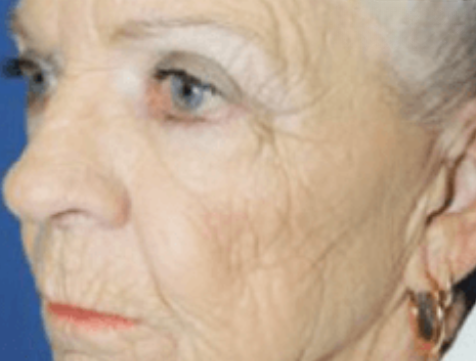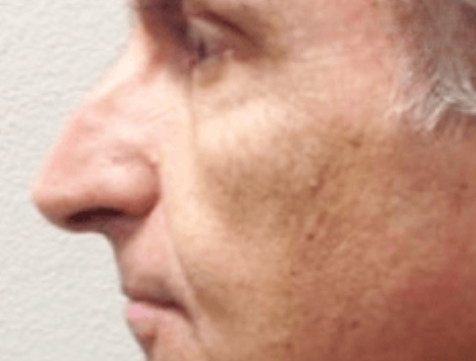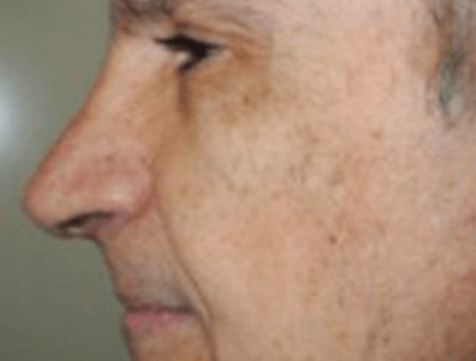Proper aftercare is not just a step in the process; it’s the foundation for maintaining the beautiful results of your augmentation surgery. This guide is designed to walk you through each phase of post-operative care, ensuring that every aspect of your recovery receives the attention it deserves. From managing pain and swelling to nurturing the surgical site, every detail counts towards preserving the enhancements you’ve achieved.
Contents
- 1 Understanding Augmentation Surgery
- 2 Preparation Before Surgery
- 3 Immediate Post-Surgery Care
- 4 Home Recovery Environment
- 5 Diet and Nutrition
- 6 Physical Activity Guidelines
- 7 Follow-up and Checkups
- 8 Emotional Well-being
- 9 Long-term Care and Maintenance
- 10 Common Misconceptions
- 11 Get the body of your dreams
- 12 Frequently Asked Questions
Understanding Augmentation Surgery
Augmentation surgery, a life-changing procedure for many, requires careful consideration and planning. The success of augmentation surgery hinges not just on the surgeon’s skill but also on the thorough pre-surgical planning, which includes understanding patient goals, evaluating health conditions, and discussing potential risks and outcomes. The goal is to ensure that each patient’s expectations align with the realistic possibilities of surgical outcomes.
Preparation Before Surgery
Preparing for augmentation surgery involves several key steps to ensure you are both physically and mentally ready. This crucial phase includes:
- Medical Evaluations: Undergoing thorough medical evaluations as recommended by Dr. Bandy to assess your health status.
- Medication Review: Discuss your current medications with Dr. Bandy to avoid any potential complications during and after surgery.
- Lifestyle Adjustments: Making necessary lifestyle changes, such as quitting smoking and limiting alcohol consumption, as these can affect recovery.
- Understanding the Procedure: Gaining a clear understanding of the augmentation surgery process, risks, and expected outcomes. Dr. Bandy ensures each patient is well-informed.
- Mental Preparation: Mental preparation is equally important. Consider counseling or joining support groups to manage any anxiety or questions about the surgery.
Immediate Post-Surgery Care
The first 24 hours after augmentation surgery are a critical period for recovery. This phase includes:
- Pain Management: Managing post-surgery pain effectively with prescribed medications and following Dr. Bandy’s pain management protocol.
- Rest and Monitoring: Ensuring ample rest and monitoring for any signs of complications. Dr. Bandy’s team will provide guidelines on what to look for.
- Mobility: Understanding the importance of minimal but necessary mobility to prevent blood clots and promote circulation, as guided by Dr. Bandy.
- Hydration and Medication: Staying hydrated and adhering strictly to prescribed medication schedules to aid in the healing process.
Home Recovery Environment
Setting up a conducive recovery environment at home includes:
- Comfortable Resting Area: Preparing a comfortable area to rest, preferably with easy access to essential items.
- Assistance: Arranging for someone to help with daily tasks, especially in the first few days post-surgery.
- Recovery Supplies: Stocking up on recommended recovery supplies, including ice packs, loose clothing, and any special equipment advised by Dr. Bandy.
Diet and Nutrition
A well-balanced diet plays a pivotal role in your recovery process:
- Nutrient-Rich Foods: Incorporating foods rich in vitamins, minerals, and proteins to support wound healing and overall health.
- Hydration: Keeping yourself well-hydrated to aid in recovery and detoxification.
- Avoid Certain Foods: Avoid foods that can cause inflammation or hinder the healing process, such as processed foods, high-sugar items, and excessive caffeine.
By following these guidelines, patients under Dr. Bandy’s care can look forward to a smoother recovery and better overall outcomes from their augmentation surgery.
Physical Activity Guidelines
Balancing rest and physical activity during the recovery phase is crucial for a smooth healing process after augmentation surgery. Dr. Bandy recommends the following guidelines:
- Initial Rest: Immediately following surgery, complete rest is essential. Avoid any strenuous activities that could strain the surgery site.
- Gradual Movement: Begin with light activities like gentle walking around the house to promote blood circulation.
- Limiting Physical Strain: Avoid lifting heavy objects or engaging in high-impact exercises for a specified period, usually several weeks, as advised by Dr. Bandy.
- Resuming Exercise: Gradually reintroduce exercise into your routine. Start with low-impact activities and progressively increase intensity based on Dr. Bandy’s recommendations and your body’s response.
- Listening to Your Body: Pay close attention to your body’s signals. If you experience pain or discomfort, reduce your activity level and consult Dr. Bandy.
Follow-up and Checkups
Regular follow-up appointments with Dr. Bandy are a vital part of the recovery process:
- Initial Checkup: The first follow-up is usually scheduled shortly after surgery to monitor your initial recovery.
- Ongoing Assessments: Subsequent appointments will focus on assessing the healing of incisions, the condition of implants (if applicable), and overall health.
- Addressing Concerns: These appointments are also an opportunity to discuss any concerns or unusual symptoms with Dr. Bandy.
- Long-term Monitoring: Even after full recovery, periodic checkups may be recommended to ensure the long-term success of the surgery.
Emotional Well-being
Recovery from augmentation surgery involves emotional healing alongside physical recovery:
- Emotional Fluctuations: It’s common to experience a range of emotions, from excitement about the results to anxiety about the recovery process.
- Support System: Having a strong support system in place can significantly impact your emotional well-being. This can include family, friends, or a professional counselor.
- Open Communication: Don’t hesitate to communicate your feelings with Dr. Bandy’s team. They can provide additional resources or referrals to mental health professionals if needed.
- Self-Care Practices: Engaging in self-care activities, such as meditation, reading, or light hobbies, can help maintain a positive mindset during recovery.
Long-term Care and Maintenance
Ensuring the longevity and success of your augmentation surgery results requires ongoing care and attention. Dr. Amy Bandy emphasizes the following for long-term care and maintenance:
- Regular Self-Examinations: Regularly inspect the surgery area for any changes or irregularities. This is especially important for patients with implants.
- Healthy Lifestyle Choices: Maintain a healthy lifestyle, including a balanced diet and regular exercise, to preserve the results of your surgery.
- Sun Protection: Protect the surgery area from excessive sun exposure to prevent scarring and skin damage.
- Annual Checkups: Schedule annual checkups with Dr. Bandy or as recommended. These appointments are crucial for monitoring the long-term outcomes of the surgery.
- Understanding Aging: Be aware that natural aging and lifestyle changes can affect the results over time. Discuss with Dr. Bandy any concerns or additional procedures that may be needed in the future.
- When to Seek Medical Attention: If you notice any unusual symptoms, such as pain, swelling, or changes in the appearance of the surgery area, contact Dr. Bandy immediately.
Common Misconceptions
There are several myths and misconceptions surrounding recovery from augmentation surgery. Here, we address some of the most common ones:
- “Recovery is Extremely Painful”: While some discomfort is normal, modern surgical techniques and effective pain management make the recovery process much more comfortable than often perceived.
- “Implants Need to be Replaced Every Few Years”: The longevity of implants varies, but they often last longer than the commonly believed 10-year timeframe. Regular checkups will help assess their condition.
- “You Can’t Breastfeed After Breast Augmentation”: Most women can breastfeed after breast augmentation, but it’s important to discuss this with Dr. Bandy if you plan to have children in the future.
- “Surgery Results are Instantly Visible”: Swelling and healing can affect the immediate appearance post-surgery. The final results are typically visible after the body has fully healed.
- “Any Surgeon Can Perform Augmentation Surgery”: Augmentation surgery should be performed by a qualified plastic surgeon like Dr. Bandy, who has specific training and experience in this field.
Get the body of your dreams
Considering augmentation surgery? Reach out to Dr. Bandy for a personalized consultation to discuss your options and get expert guidance.
Frequently Asked Questions
What should I expect immediately after augmentation surgery?
Expect mild discomfort and instructions on managing pain and activities.
How long does recovery typically take?
Recovery times vary, but general guidelines will be provided.
What diet should I follow post-surgery?
A balanced diet with specific recommendations will be discussed.
When can I resume normal activities?
Timelines for resuming activities depend on individual progress.
How often are follow-up appointments necessary?
Regular follow-ups are crucial; their frequency will be tailored to your needs.













